CONF-SEML 2024
The 2nd International Conference on Software Engineering and Machine Learning (CONF-SEML 2024) is a leading conference on software engineering and machine learning. University of Portsmouth, Illinois Institute of Technology, Saint Leo University, and Zayed University are co-organizers of CONF-SEML 2024. CONF-SEML 2024 is open to international participants. It provides an excellent opportunity for scholars interested in artificial intelligence and information technology to share their findings and achievements, thus promoting communication and cooperation. This conference is supported by faculty members from University of Derdy, University of Strathclyde and Bournemouth University.
Symposium Series
Symposium – Portsmouth: Detecting Botnets Using Machine Learning
Symposium Chair: Dr. Stavros Shiaeles, Reader in University of Portsmouth
May 15, 2024, the University of Oxford hosted an insightful symposium focused on using machine learning techniques to detect botnets. The session, aimed at cybersecurity professionals and students, explored advanced methods for identifying botnet activities within network traffic. The symposium began with an overview of botnets and their evolving threat landscape. Participants then delved into various machine learning algorithms, including supervised and unsupervised learning, used for botnet detection. Practical sessions demonstrated data preprocessing, feature extraction, and model training using real-world datasets. Attendees also learned about evaluating model performance and the importance of continuous learning to adapt to new botnet strategies. The symposium emphasized the need for robust data collection and the ethical implications of using machine learning in cybersecurity. Interactive discussions and Q&A sessions provided deeper insights, enabling participants to apply these techniques in their professional environments. The event underscored the critical role of machine learning in enhancing cybersecurity measures against botnet threats.
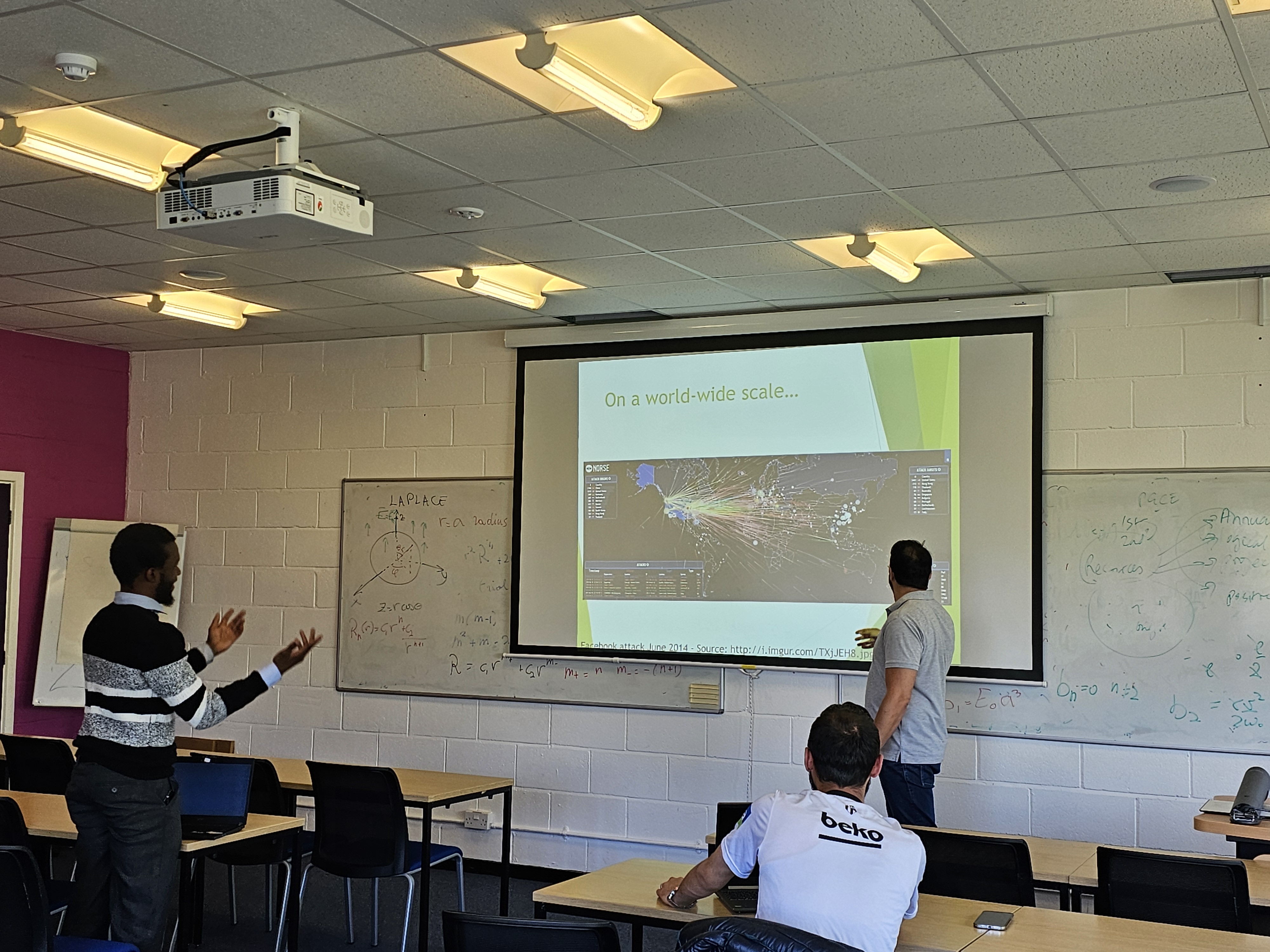
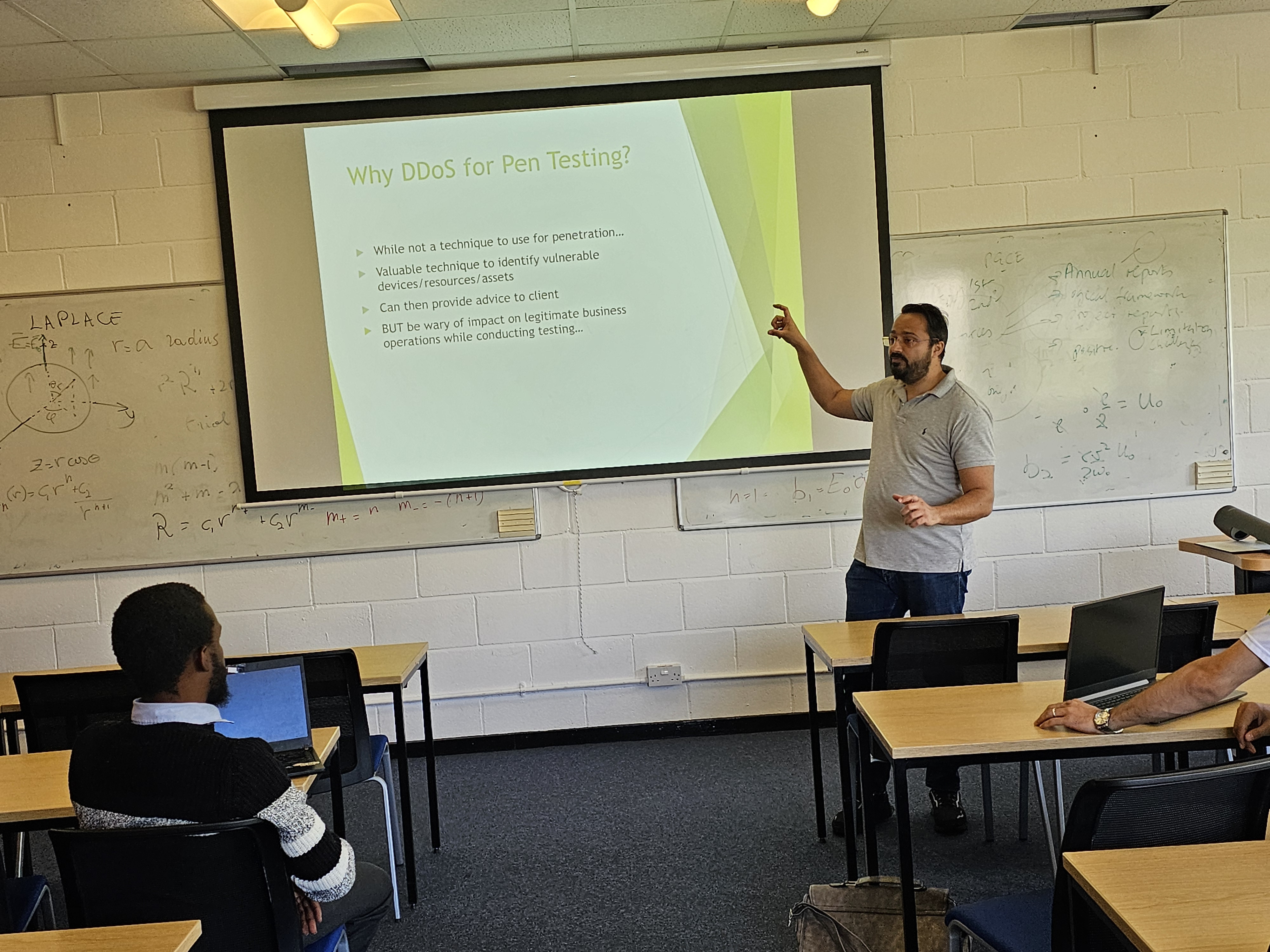
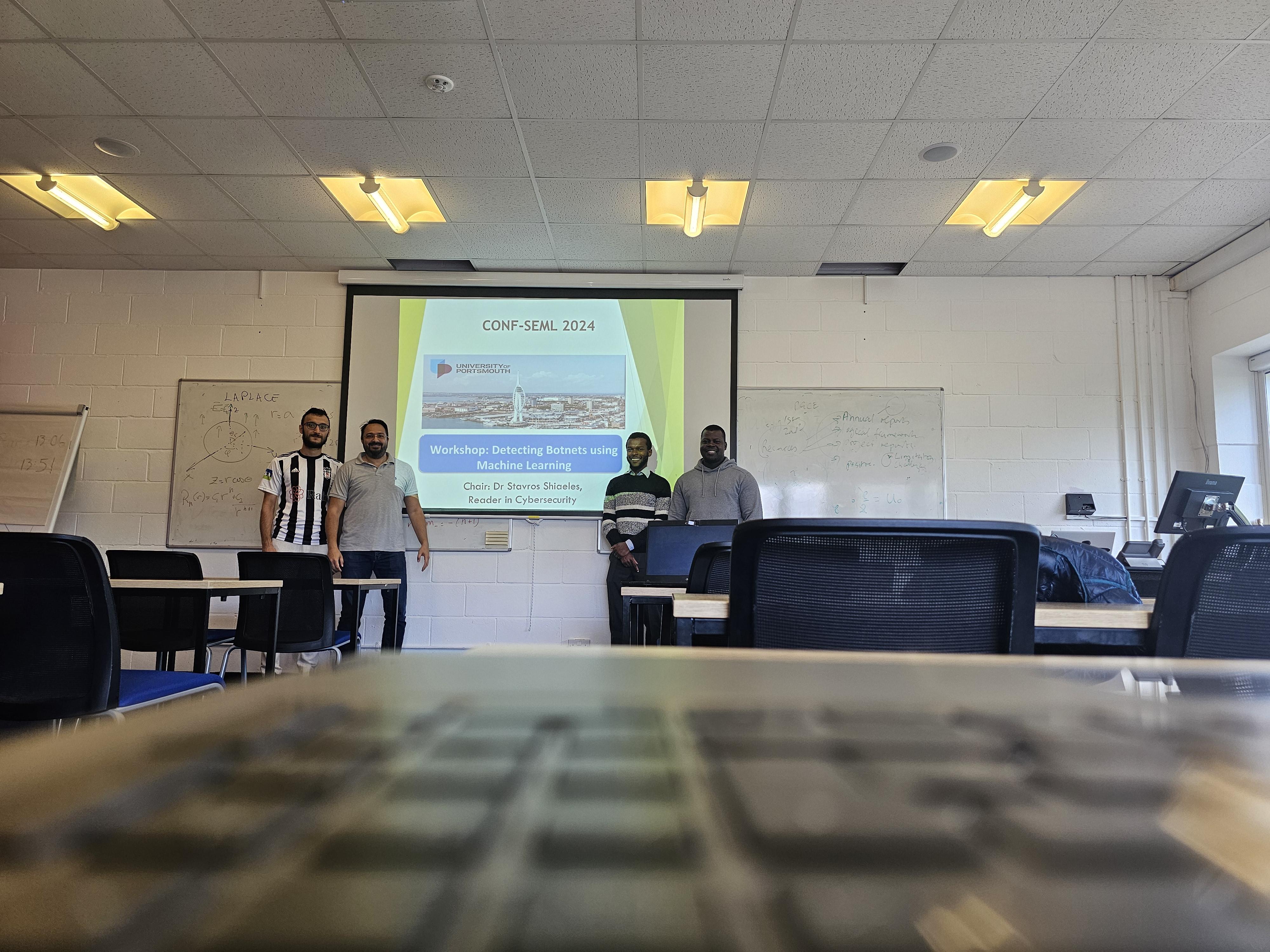
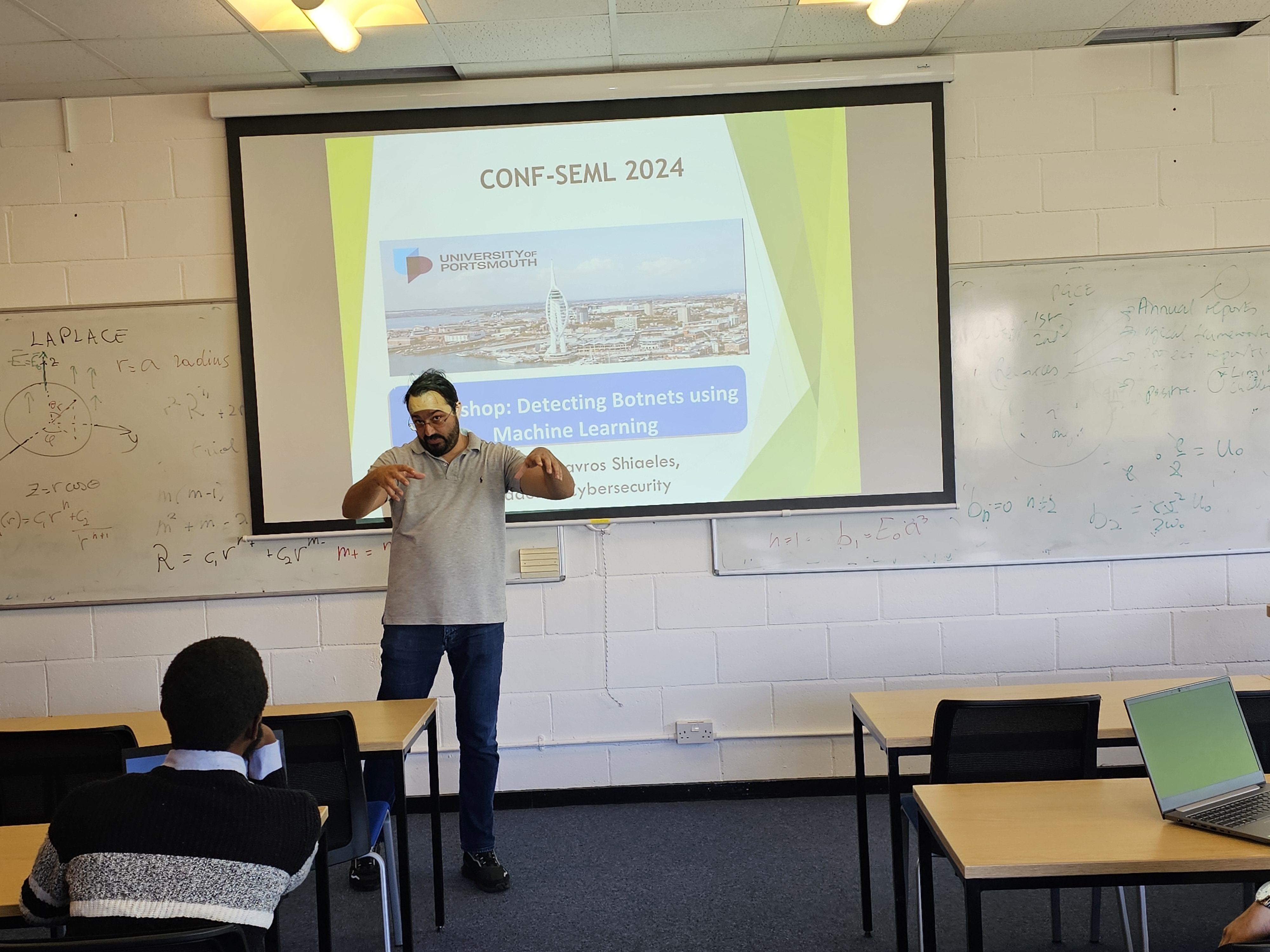
Symposium – Chicago: Modeling Software Architecture
Symposium Chair: Dr. Marwan Omar, Associate Professor in Illinois Institute of Technology
The "Modeling Software Architecture" symposium focused on essential principles, techniques, and tools necessary for effective software architecture design. Recognizing the critical role of architecture in complex software systems, the symposium aimed to equip participants with the skills to create robust and scalable architectures.
Participants learned various modeling techniques, including architectural styles, notations, and languages, to represent different architectural aspects. Emphasis was placed on capturing architectural decisions, system components, interfaces, and their relationships to ensure a coherent design. The symposium also covered architectural patterns and frameworks, which offered reusable solutions to common design problems and enhanced attributes like modifiability, performance, and security.
Hands-on sessions allowed participants to apply these patterns to real-world scenarios. Additionally, the symposium addressed the analysis and evaluation of software architectures through architectural reviews, inspections, and performance modeling. Participants learned to assess the quality and trade-offs of different architectural alternatives, making informed design decisions.
By the end of the symposium, attendees had a comprehensive understanding of software architecture modeling. They were equipped with practical techniques and tools to design, communicate, and evaluate software architectures, ensuring the creation of robust, scalable systems that met stakeholder needs and aligned with business goals.
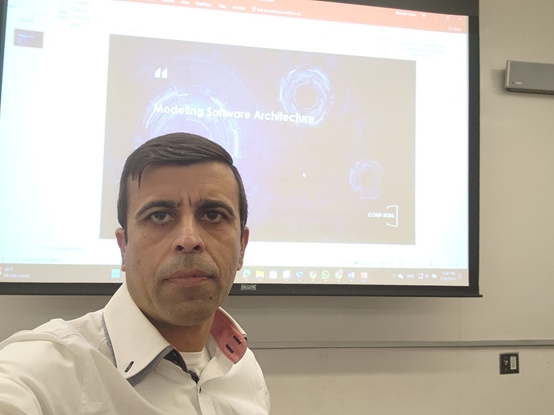
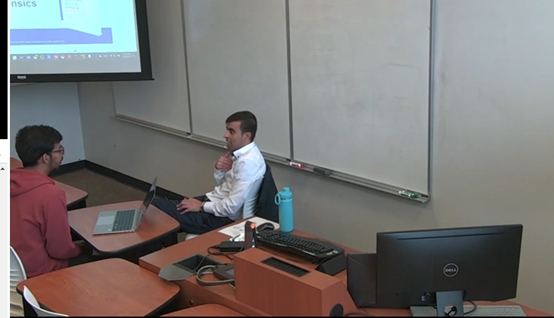
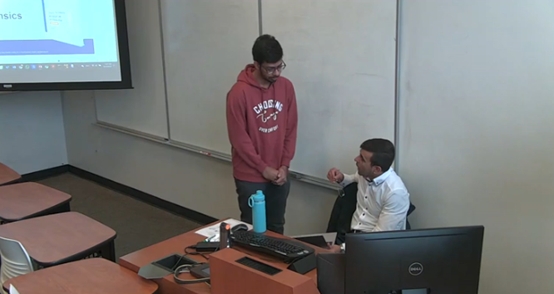
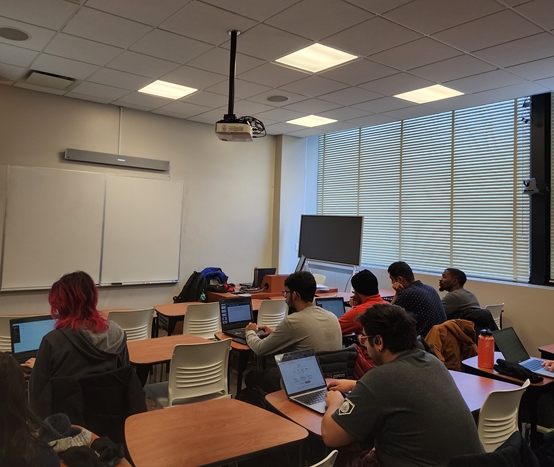
Symposium – Beijing: AI based Intelligent Sensing and Applications
Symposium Chair: Dr. Xinqing Xiao, Associate Professor in China Agricultural University
The symposium *AI based Intelligent Sensing and Applications* was successfully held on April 15, 2024 at the College of Engineering, China Agricultural University chaired by Assoc. Professor Xinqing Xiao. The 18 students attending the symposium were mainly doctor, master and international students from the discipline of mechanical and electronic engineering and agriculture engineering, and 4 researchers accounting at China Agricultural University. The symposium showcased some of the latest research conducted in the area of AI based intelligent sensing technologies and applications as well as overlaps between the subjects. Some of the topics discussed including examination of machine learning or other AI methods and intelligent sensing topics or have implications for machine learning and intelligent sensing technologies and applications and the development trends in future. The symposium also has discussed the possible application in intelligent agriculture, food monitoring etc. by using machine learning or other AI methods and intelligent sensing technologies.
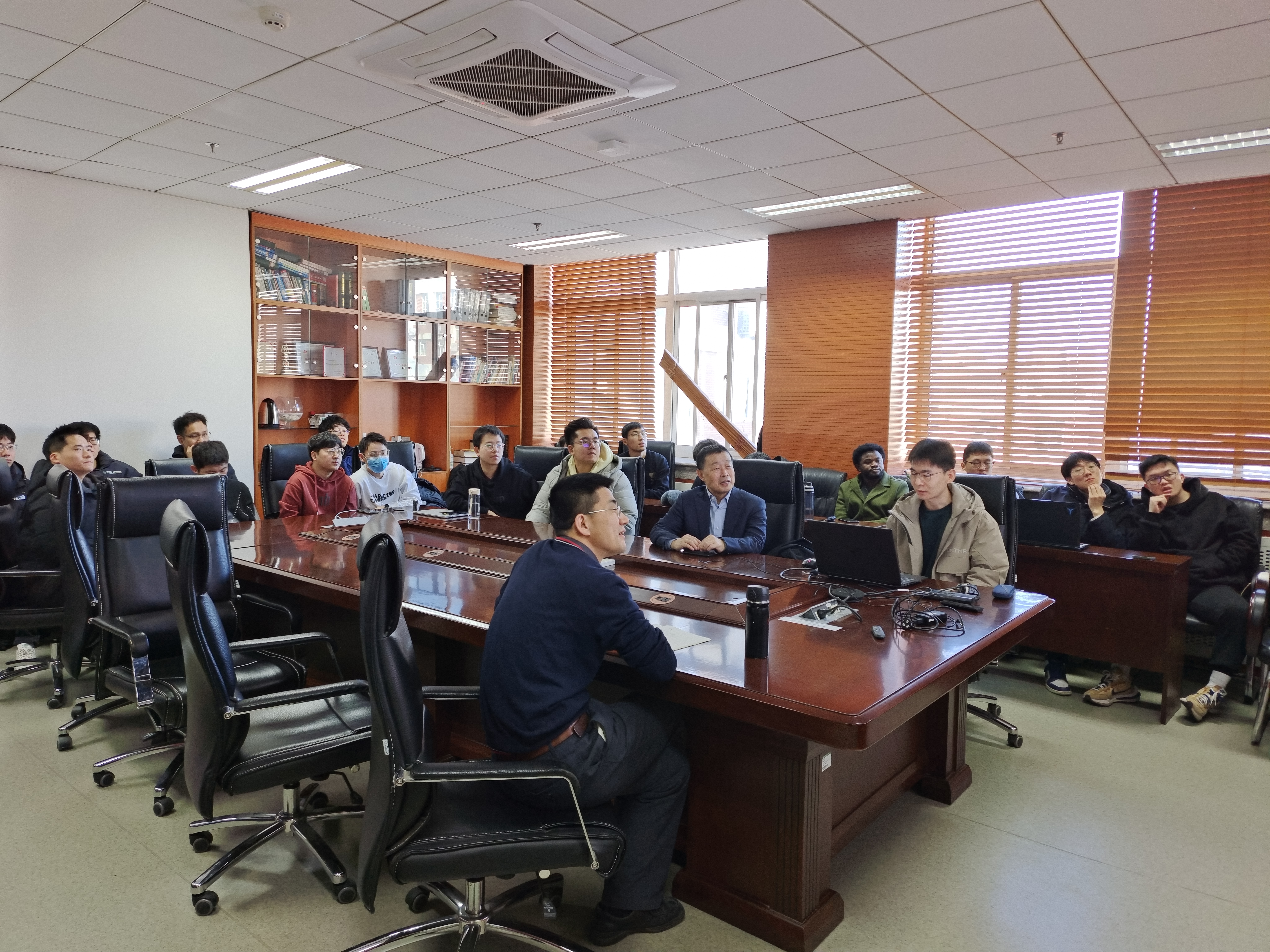
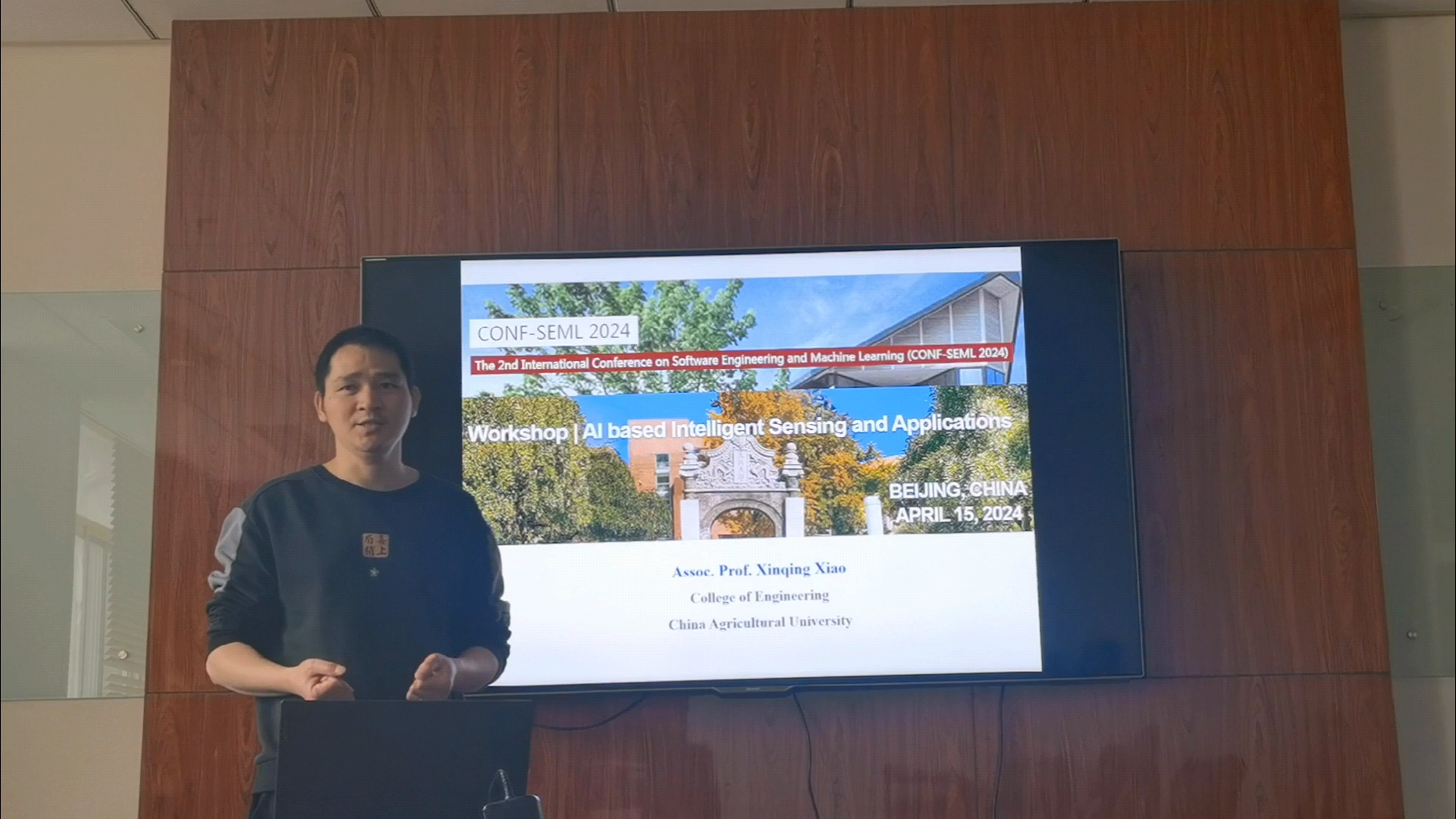
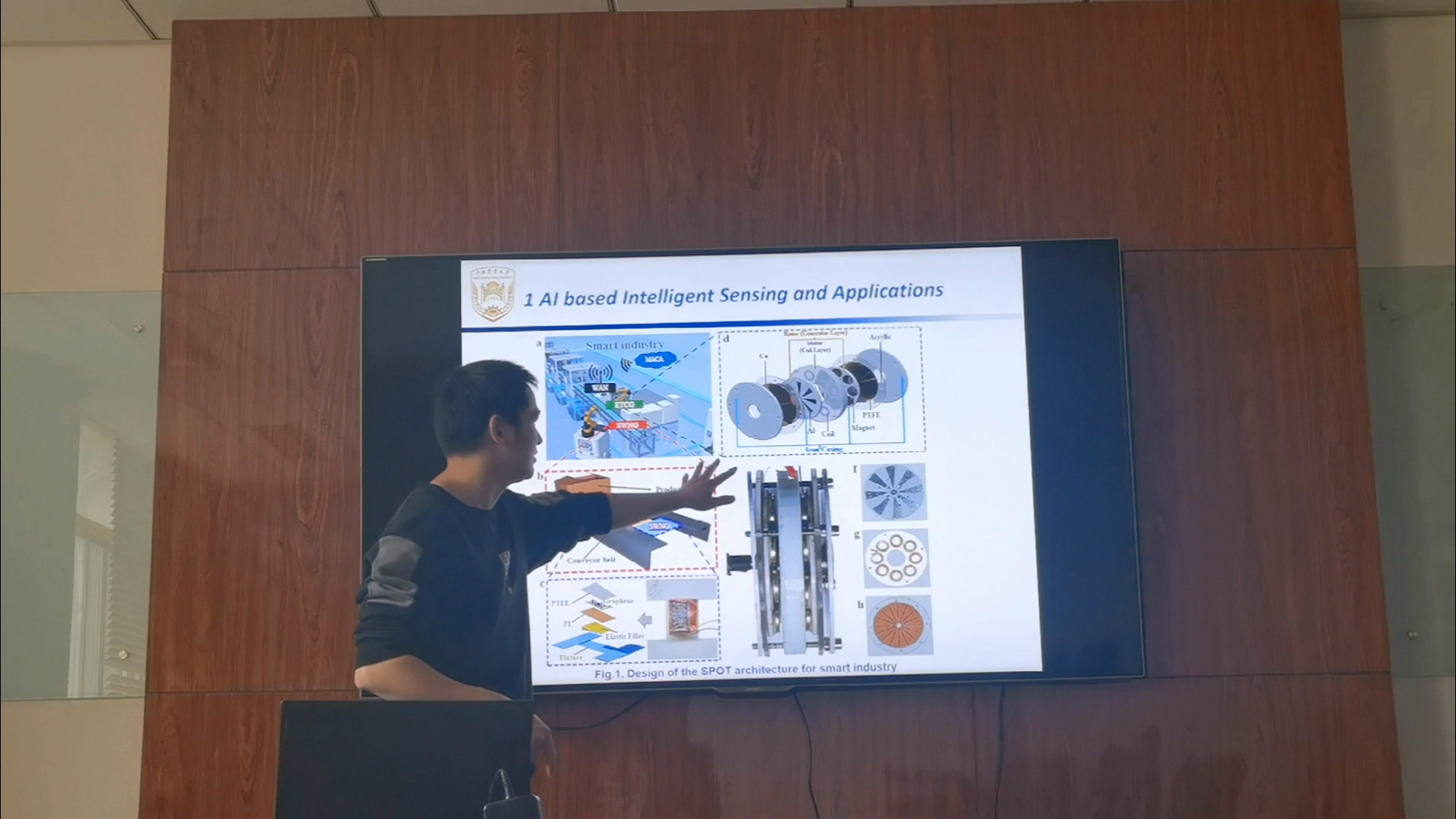
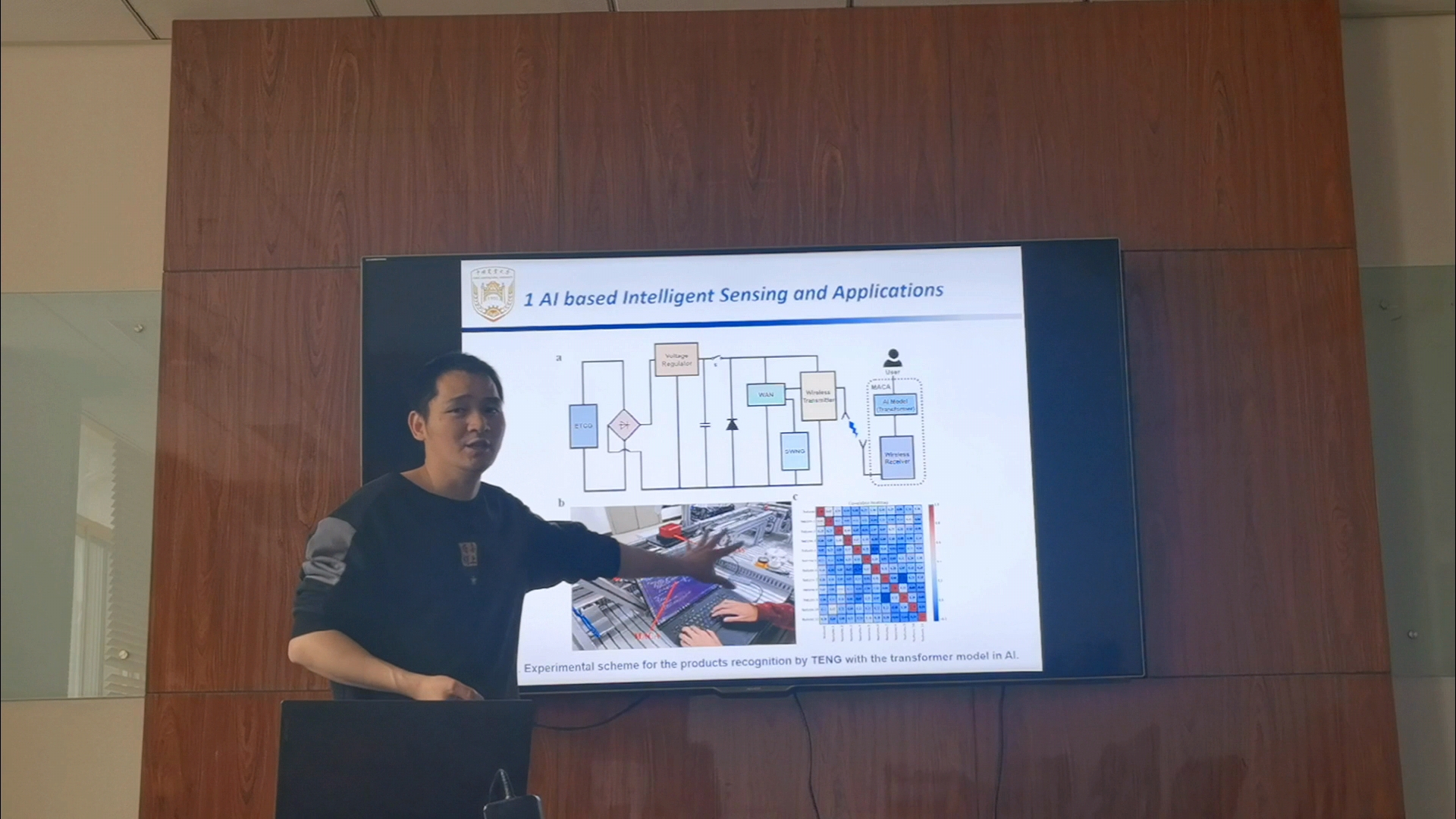
Symposium – Abu Dhabi: Innovating with IoT: Inspiring Ideas and Applications for a Connected World
Symposium Chair: Professor Jamal Al Karaki, Professor in Zayed university
The "Linguistic Forensics: Leveraging NLP for Enhanced Cybersecurity Threat Detection and Response" symposium aims to bridge the gap between the fields of NLP and cybersecurity, demonstrating how linguistic analysis can be a powerful tool in combating cyber threats. This educational event targets cybersecurity professionals, IT specialists, and data scientists, offering an immersive learning experience through a combination of theoretical lectures, case studies, and practical, hands-on sessions. Participants will gain a thorough understanding of how NLP techniques can be applied to analyze text-based data to identify and counteract various cyber threats such as phishing and fraud. By the end of the symposium, attendees will be equipped with advanced knowledge and practical skills to implement NLP strategies within their own organizations, enhancing their cybersecurity measures against sophisticated attacks. This symposium will also facilitate networking, encouraging collaboration and the exchange of ideas among professionals in the field.
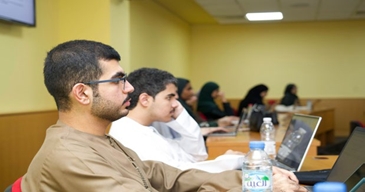
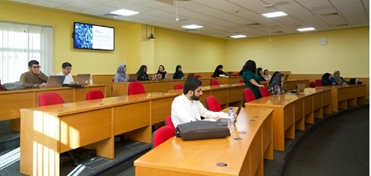
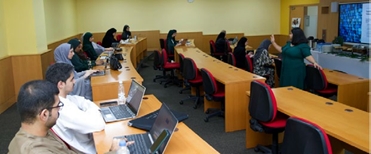
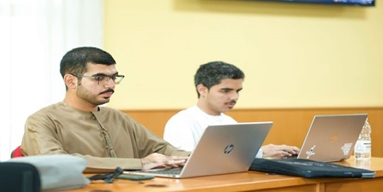
Symposium – Macau: Urban Intelligence: Machine Learning in Smart City Solutions
Symposium Chair: Dr. Jinyu TIAN, Assistant Professor in Macau University of Science and Technology
On June 5, 2024, a seminar entitled “Urban Intelligence: Machine Learning in Smart City Solutions” was held at the Macau University of Science and Technology (MUST) in N213, with the participation of students, mainly PhD students from MUST's Computer Science and Electronics and Information Engineering programs. The symposium showcased some of the latest research conducted in the field of artificial intelligence and related hardware algorithms. We discussed we discussed the strategy and theoretical analysis of Misère-Nim and its triangular game variants, the study of VAE-GAN integration to enhance generative modeling capabilities, deep reinforcement learning based on harmonic analysis to assist in DBSRC minimum current control, and the application of improved two-individual evolutionary algorithms to flexible job shop scheduling. At the heart of these discussions lies the loss of user confidence in the stability and reliability of algorithms and models. The problem becomes apparent when a large number of users fear that these algorithms will fail in real-world applications. Key drivers in their respective domains are discussed, including perceptions of technical instability and challenges in real-world applications, and strategies for improvement are proposed. The symposium concludes by analyzing recent examples of practical applications in these domains.
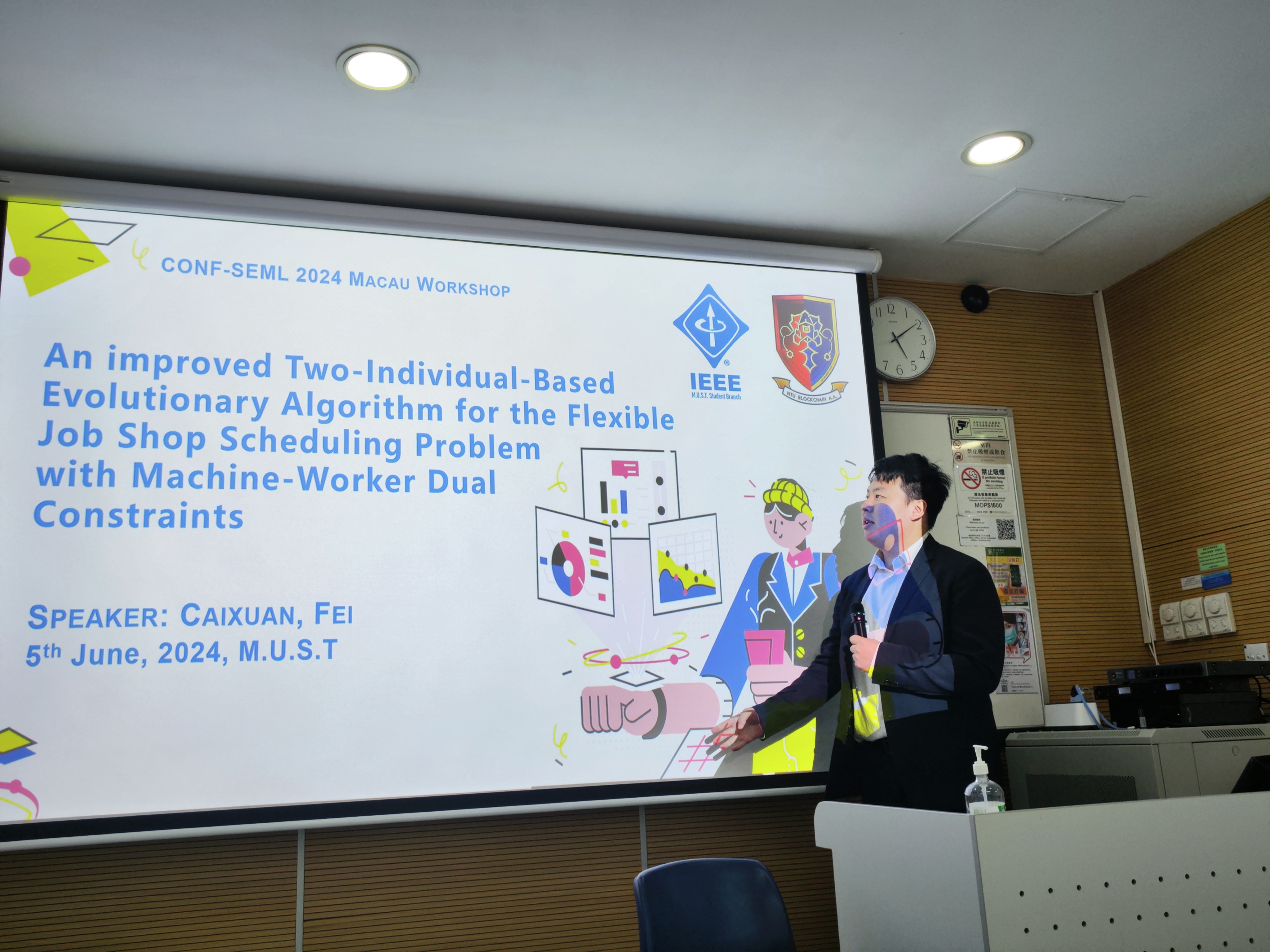
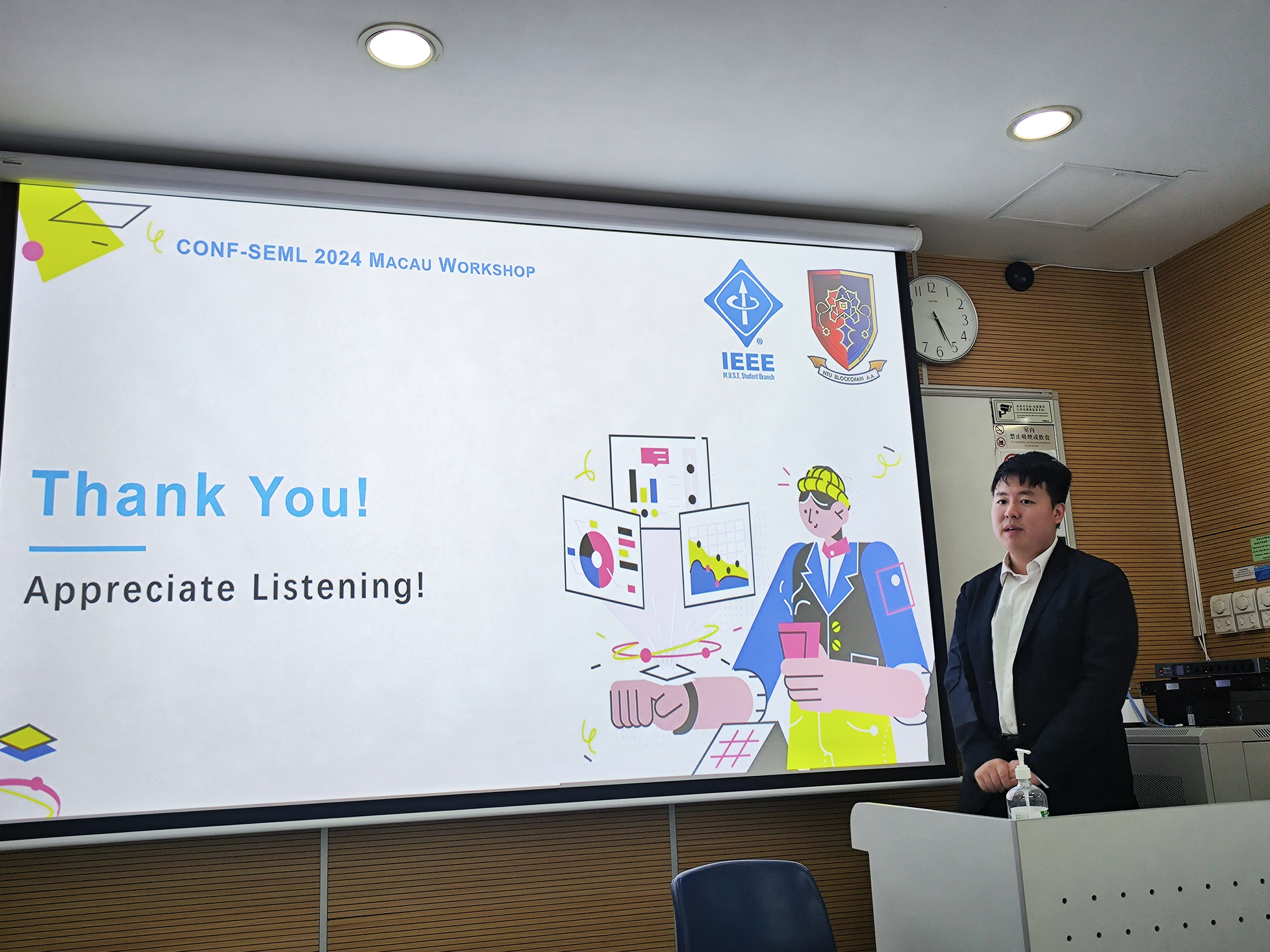
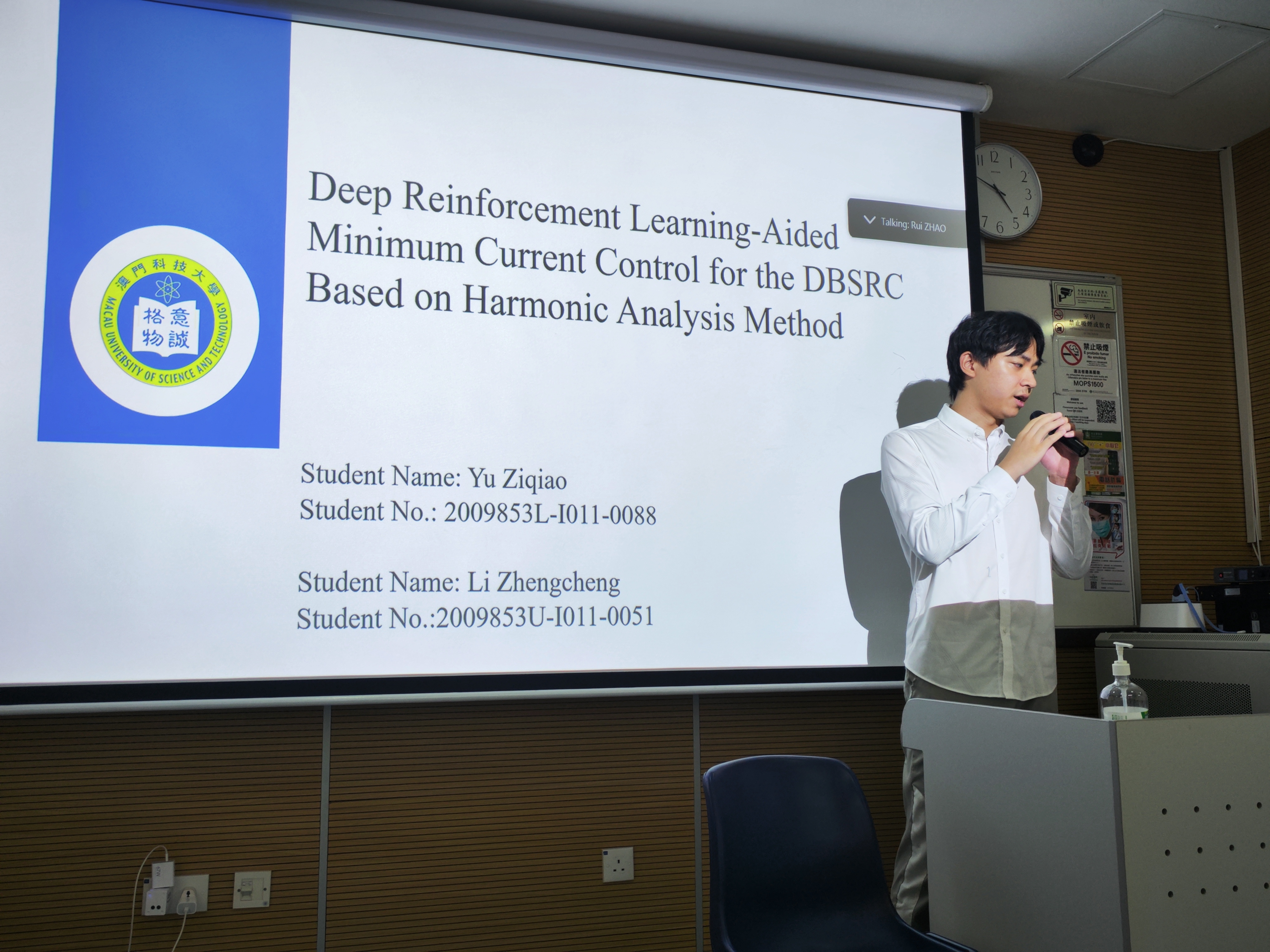
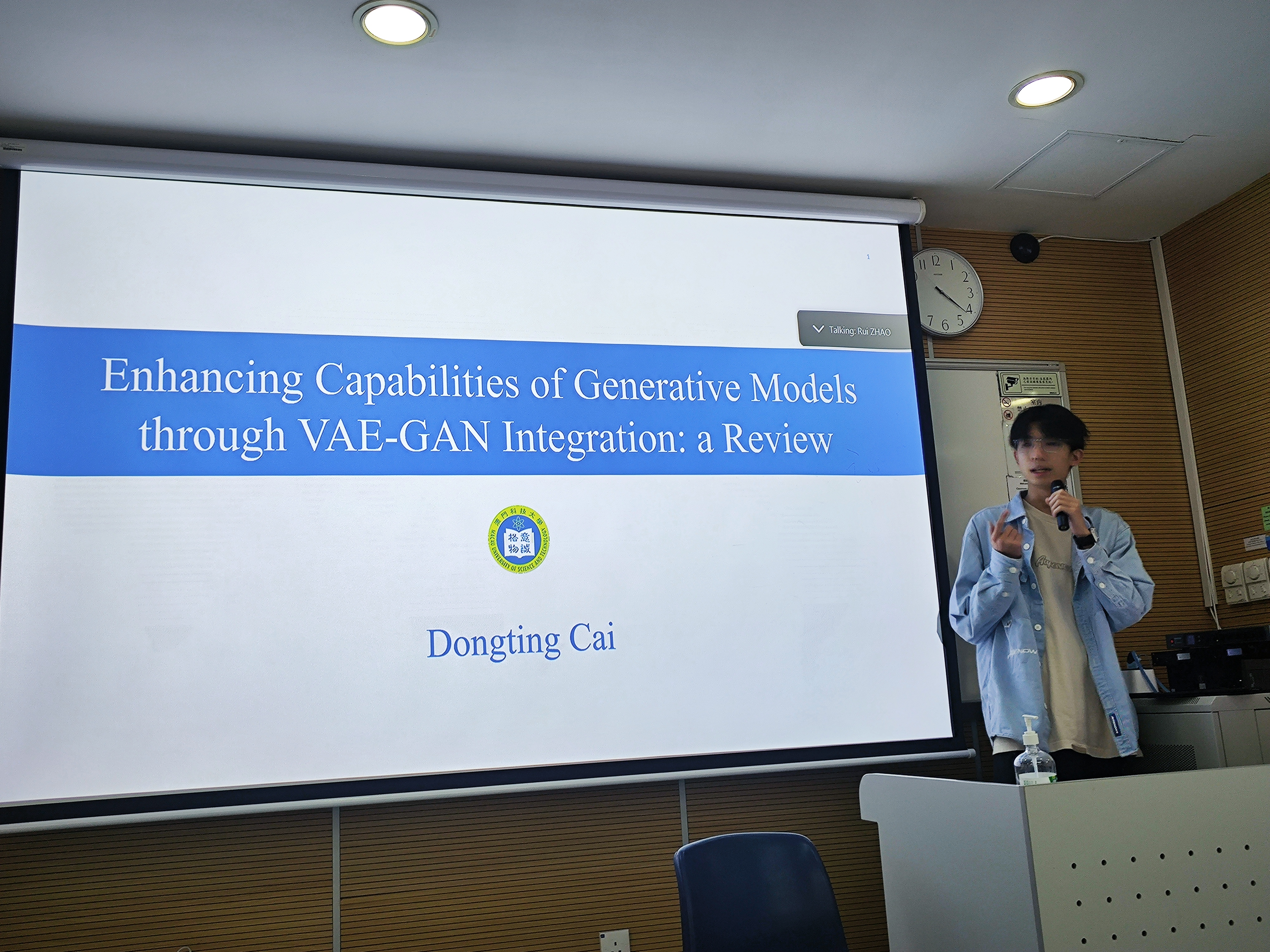
Videos
You can find the Youtube Playlist of online session Here.
Publications
Accepted papers of CONF-SEML 2024 have been published in Journal of Physics: Conference Series (Print ISSN: 1742-6588) or Applied and Computational Engineering (Print ISSN: 2755-2721) and were submitted to EI Compendex, Conference Proceedings Citation Index (CPCI), Crossref, CNKI, Portico, Inspec, Scopus, Google Scholar, and other databases for indexing.
Title: Journal of Physics: Conference Series
Press: IOP Publishing, United Kingdom
ISSN: 1742-6588
Title: Applied and Computational Engineering
Press: EWA Publishing, United Kingdom
ISSN: 2755-2721